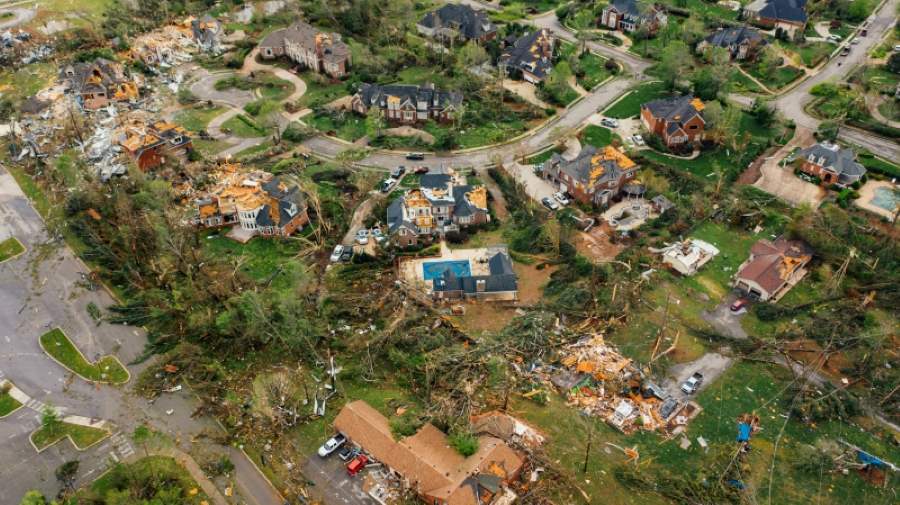Hannah Hughes | The Conversation
The UN’s climate science advisory group, the Intergovernmental Panel on Climate Change (IPCC), is currently meeting in Bulgaria to decide on a timeline for its next “cycle” of reports over the rest of this decade. That decision should have been taken in January, but government divisions arose over aligning IPCC outputs with UN climate negotiations, at a meeting that the IPCC chair described as “one of the most intense” he had experienced.
Political struggle over the final wording of IPCC reports is well known, but this division at the start of the process reflects the organisation’s achievements. The more successful it becomes in disseminating climate knowledge, the more deeply imbued in climate politics it becomes.
I have studied the IPCC for 15 years and think these political factors are often overlooked. For instance, though the reports are written by scientists, governments play an integral role throughout the process. The IPCC is after all an intergovernmental body – it’s governments that decide to produce the reports and give the final approval, not scientists.
Most notably, this involves the final line-by-line approval of a report’s key findings in the “summary for policymakers” (the only bit most people read). Media reporting and accounts by IPCC authors frequently reveal the extent of negotiation over how the latest knowledge of climate change is presented to the public. This has lead to whole sections being deleted and open conflict between scientists and government delegates.

However, decisions made at the start of an assessment cycle are equally fraught with politics. These include electing the bureau and approving the report outline. The politics sometimes come to light, as it did when Wikileaks revealed US manoeuvring to secure the election of the US co-chair candidate for a previous round of reports which were published in 2013 and 2014.
These struggles indicate the impact that IPCC reports can have on official UN climate negotiations, where its reports provide the knowledge base to inform a collective response.
Climate negotiations are characterised by major divisions between developed and developing countries and these same political issues have shaped the IPCC too. For developing countries, climate change has never been a purely scientific issue. It is a question of development, and participation in the IPCC reflects levels of economic development.
Economic resources and long-term investment are required to produce the sort of globally-recognised climate research that leads to a country becoming an influential member of the IPCC.
Although the IPCC funds the travel of some developing country authors and one government representative, developing countries remain dramatically underrepresented. At the same time, the IPCC’s reports and global climate policymaking dramatically shape how a country can develop in future.
IPCC reports can also support the goals of climate negotiators and accelerate climate action. This was evident in the IPCC’s special report on 1.5°C, which made world headlines when it was published in 2018, and which had challenged scientists to investigate a lower temperature target than the 2°C they had been working with.
The report legitimised the lower temperature goal and applied further pressure on governments to decarbonise faster. Concerned that their collective approval of the IPCC report would signal official endorsement of the 1.5°C goal, the US, Saudi Arabia, Russia and Kuwait prevented official recognition of the report at COP24 in Poland later that year.
A direct input into negotiations
The political stakes have also been raised by the IPCC being specified as a source of the “best available science” for the global stocktake as part of the Paris agreement. The global stocktake, first completed at COP28 in Dubai in 2023, is the mechanism to assess progress on climate change and increase ambition as necessary.
Serving as a direct input into the negotiations increased the political wrangling over every word in the approval of the IPCC reports’ summary for policymakers. This was particularly the case for the report on mitigation, where the approval meeting ran over by two days and was branded as the longest session in the IPCC’s history. The summary for policymakers grew substantially through government attempts to elaborate and re-word the report’s key findings.

As co-chair of the mitigation working group, it was Professor Jim Skea that chaired most of this approval session. This is a man that knows intense meetings. This makes his comment over his experience at the IPCC meeting in January (which he also chaired) particularly noteworthy.
The success of the IPCC’s previous assessment cycle (its sixth) is already marking the seventh. At the current meeting in Bulgaria, which runs until August 2, governments need to decide a timeline for the seventh assessment cycle – its next major round of reports. The reports will need to be completed by 2028 at the latest to inform the second global stocktake.
If the timeline is delayed, and the seventh assessment cycle does not inform the international response to climate change and increase collective ambition, what is its purpose? Establishing this in Bulgaria will be central to determining the success of the IPCC in future.
This article is republished from The Conversation under a Creative Commons license. Read the original article.
Source: The Conversation
Featured image credit: user6702303 | Freepik




